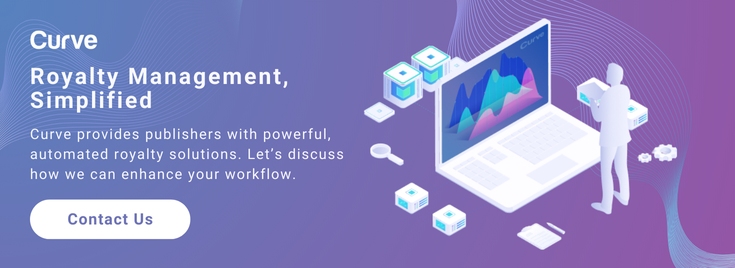Your First Music Royalty Job Won’t Look Like This in 2 Years
Thinking about a career in music royalty processing? Or perhaps you’ve just landed your first role and you’re wondering if a thousand-line script is about to take your place. The entry-level jobs in a label or publisher’s royalties departments are changing faster than ever.
For decades, “getting in” meant long hours of manual data entry - typing, copying, pasting, and triple-checking spreadsheets, but in the next 2–3 years, being an Excel wizard won’t be the golden ticket it once was. The future belongs to those who can think bigger and build smarter.
The Old Way: Spreadsheets On Spreadsheets
Traditionally, when a song got played, streamed, or sold, it kicked off a messy, manual royalty processing routine: money flowing in from hundreds of sources, all in different formats, all ending up on the desk of a royalties coordinator.
Spreadsheets keeping track of other spreadsheets, checklists keeping track of those spreadsheets, and a whole team of people repeating the same steps every month. These processes were never reimagined, only patched. As statements get bigger (a single YouTube statement can now be gigabytes in size), the “human-only” approach stops working.
The Automation Wave: If It’s Dumb, Don’t Do It
Today, smart royalty processing software is eliminating the boring, repetitive work, bulk sales ingestion, catalogue mapping, and even income mapping through automation, APIs, and direct integrations.
At Curve, we’ve helped clients migrate from systems where they still manually added a formula in Excel to deduct distribution fees before importing sales. That’s old thinking: manipulating data in one tool just to manipulate it again in another.
The new mindset is simple: if it’s dumb, don’t do it. The right software for music companies to process royalties can handle the routine, freeing you to focus on higher-value work, like going to a conference to connect or learning about distribution deals in Japan.
So, What’s Left For You?
If software to process royalties is doing the heavy lifting, what’s left for someone starting out? Plenty, but it’s a different kind of work. The new generation of royalty professionals won't just be handed a zip file full of statements; they'll be the ones who figure out how to process it more efficiently and accurately. The future royalty professional won’t be a cog in the machine; they’ll be the mechanic who rebuilds the machine.
Here’s your new job description:
- Spot Problems Others Ignore – Find the inefficient, error-causing or time-consuming parts of the royalty process.
- Build Mini-Solutions – Tinker with APIs, write small scripts, connect tools, or use software to process royalty data automatically.
- Translate Between Teams – Turn creative goals into data workflows that Finance, Marketing, Biz Dev and A&R can act on.
- Get Fluent in Raw Data – Go beyond dashboards and learn the structure, flaws, and opportunities in the files themselves.
Your value won’t come from following a process; it’ll come from breaking and rebuilding processes to strengthen them.
How To Future-Proof Your Music Industry Career
Forget just “future-proofing”, it’s time to get on the offensive.
- Become a Builder, Not Just a Doer
Learn the basics of a language like Python. Experiment with APIs. Build one script that saves your team an hour a month. That one hour, scaled, can strengthen the royalty process across the company. - Use AI to Learn Faster
Treat AI as your private tutor. Ask it to explain mechanical vs. performance royalties. Have it draft a sample distribution agreement. Ask the "dumbest" questions, and then delete the chat. There is no reason to hold back your curiosity anymore. - Tackle One Problem…Today
The music industry is full of decade-old inefficiencies. Pick one, map it out, and propose a fix, even if it’s just a souped-up spreadsheet that merges two spreadsheets into a smarter one. Reiterate and make a 2.0. - Claim a Seat at the Table
When you shift your mindset from a task-doer to a problem-solver who understands that what makes your life easy is actually good for the business, you change your value proposition. Share your wins. Present your findings. Make yourself part of the bigger conversation.
The data entry roles are disappearing, and that’s a good thing. What’s replacing them is infinitely more interesting: the chance to fundamentally change how the music business operates, from the ground up.
Automation is taking the repetitive work off your plate. Tools like Curve are making sure those processes run faster, cleaner, and at scale. Your job is to decide what to do with the time and mental space this gives you back.
Be curious, be bold, and most importantly, start now! Get in touch with Curve for more information.







